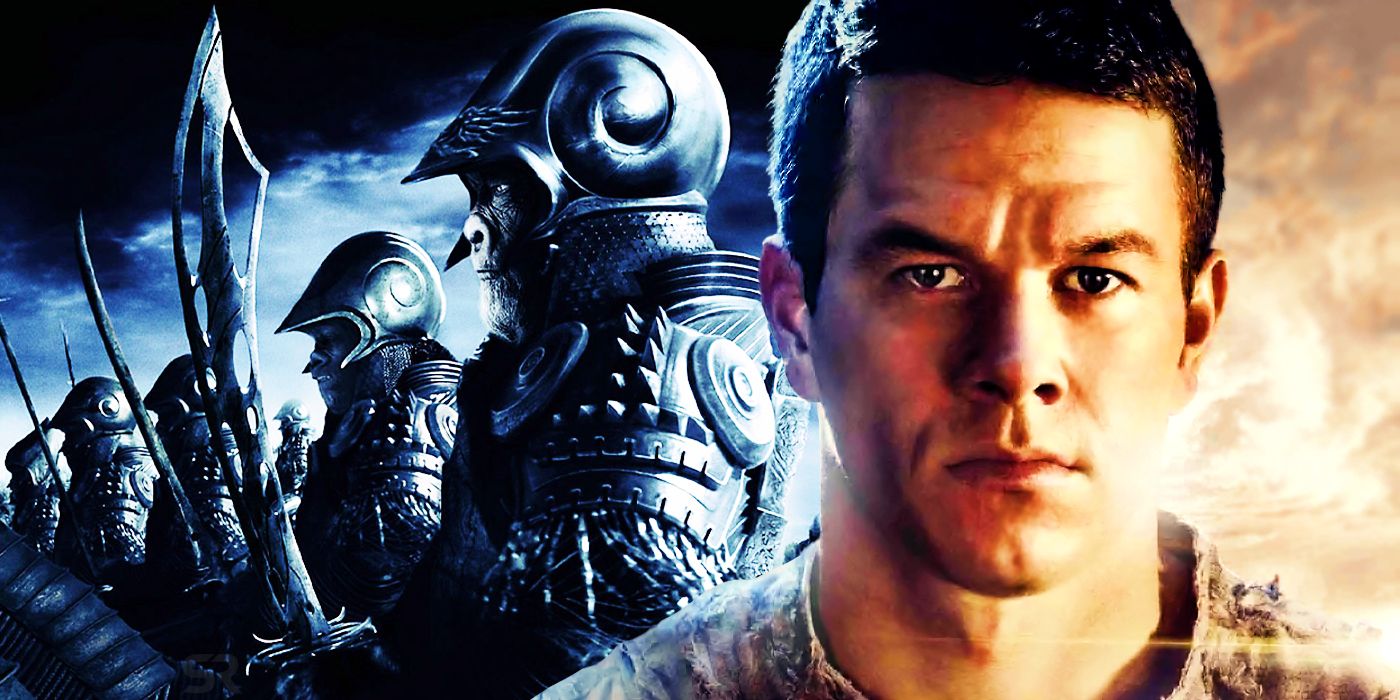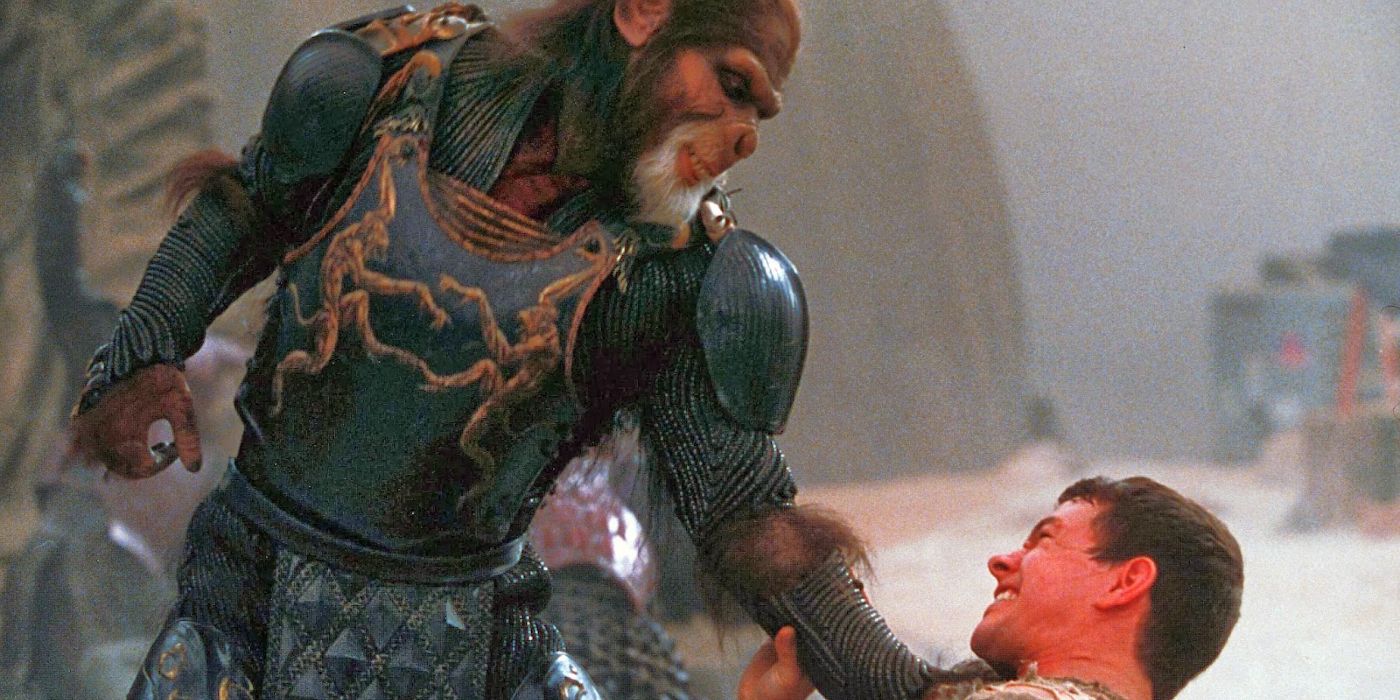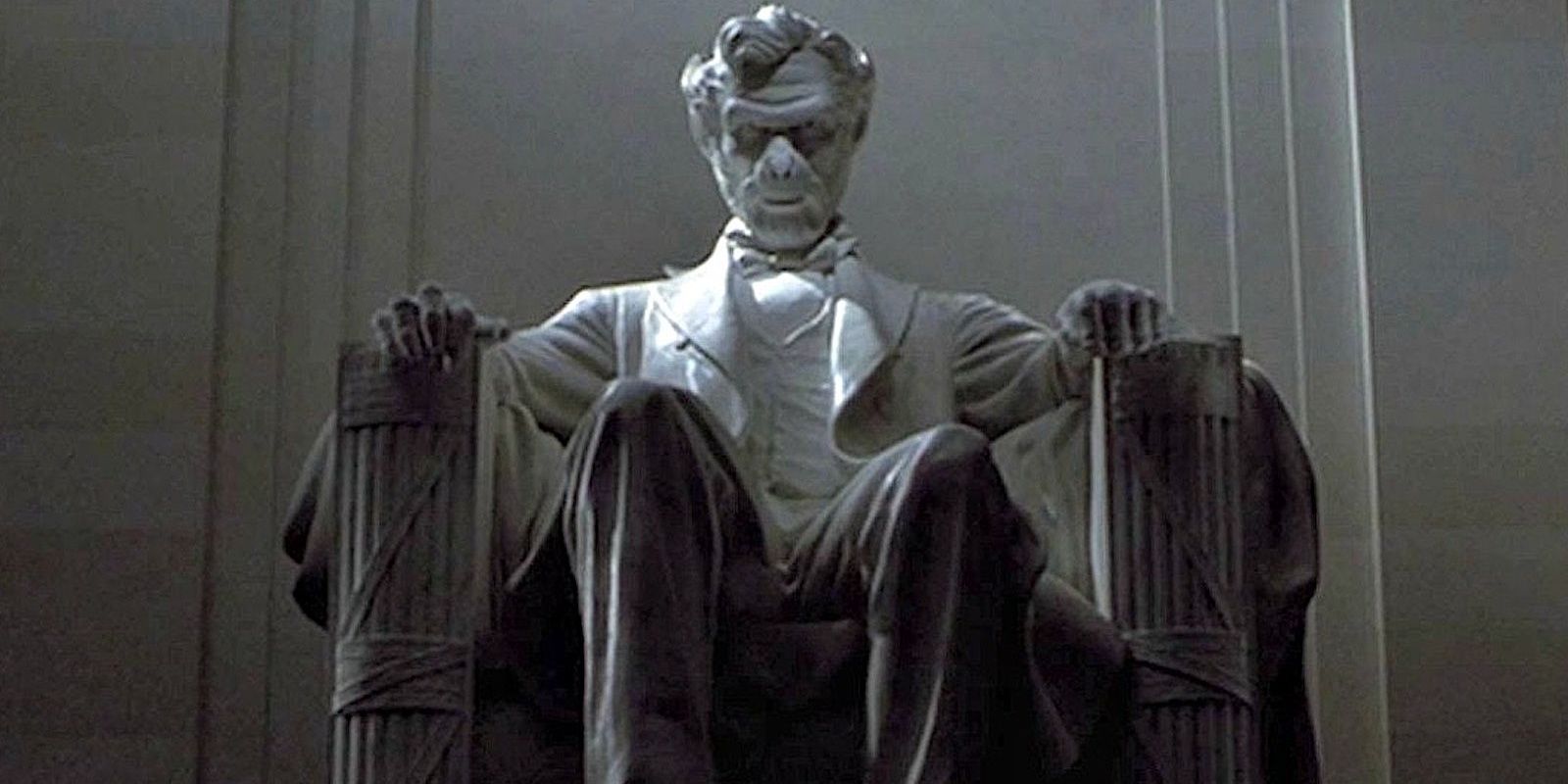Tim Burton’s Planet of the Apes was an attempt to reinvigorate a franchise that began with the 1968 movie of the same name but, despite a significant box office take, it never received a sequel. This version of the classic story of a man who crash-lands on a planet ruled by apes is an anomaly, coming as it does several decades after the last of the original movies and a decade before the franchise found new life with a trilogy. As such, it’s a particularly fascinating example of a Hollywood what-might-have-been.
Burton’s version makes a number of changes to the narrative, but it stays true to both the basic plot and the deeper thematics of the franchise. In particular, it addresses the question of human agency and hubris, demonstrating just how foolish humans are to believe that their rise to planetary dominance is natural and not an accident of evolution. 2001's Planet of the Apes becomes a warning for humanity’s treatment of animals, updating the original’s problematic racial subtext.
Why Burton's Planet Of The Apes 2 Didn't Happen
Despite the fact that it largely has been overshadowed by the success of the reboot trilogy-which began with 2011’s Rise of the planet of the Apes-Burton’s version actually earned quite a lot the box office. However, it was not particularly popular with the critics, and public reception seemed to cool on it fairly quickly as well. It opened quite strongly, but interest, and ticket sales, quickly declined. Clearly, the studio realized the risk of a potential sequel, which would likely not be given as much of a chance as the first movie and decided not to pour more money into building up the franchise.
Indeed, it would take another decade for the franchise to be reimagined, though this time Burton wouldn’t be involved. Burton’s version of the Planet of the Apes story had the disadvantage of coming along at a time before Hollywood became entranced with the ever-growing allure of established properties. It simply wasn’t worth the money it would take to keep the franchise going, even if they were fortunate enough to get Burton to sign on to direct another entry.
Planet Of The Apes 2001 Deserved A Sequel
Burton’s Planet of the Apes might have been disappointing in some regards, but it was still a remarkable effort on the director’s part. He managed to stay true to the disturbing nature of the original movie-with its inversion of the supposedly natural hierarchy between humans and apes-while also showing signs of his distinctive style. Furthermore, the naturalistic approach to many of the ape characters made them look both frighteningly human-like and yet utterly alien. There’s just enough of Burton’s macabre imagination to set this particular entry in the Planet of the Apes entries apart from both those that came before and those that came after.
The movie also deserved a sequel in order to resolve the cliffhanger ending. After Mark Wahlberg’s Leo returns to Earth, he finds that his ape nemesis Thade has arrived there before him and has subsequently led an ape uprising. Given that there is no explanation as to how this might have come to pass, audiences were led to believe that a sequel was in the works. Instead, this remains as one of the most perplexing mysteries in the franchise. Given that Planet of the Apes has been rebooted-thus creating an entirely new timeline-it’s very unlikely that fans will ever get narrative satisfaction and that Burton’s version will always be overshadowed.



